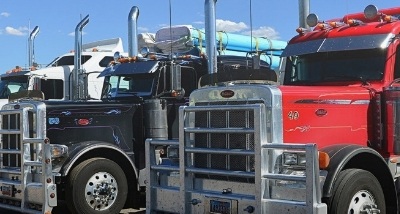National Tank Truck Carriers (NTTC) recently notified its membership that the association’s dry-bulk axle tolerance legislative effort fell just short in the Senate in August.
NTTC President Daniel R. Furth
In its letter, NTTC President Daniel Furth said: “While we are extremely disappointed that the Senate EPW Committee did not include our language in its transportation reauthorization bill, we remain committed to continue to work with our friends in the House to ensure language is included in the House transportation reauthorization bill.’’
NTTC and its coalition partners remain committed to resolving this issue for the many constituents of tank-truck nation.
“Unlike other trucking segments, dry bulk loads shift and a simple axle tolerance would allow these trucks to continue to operate on our nation’s highways without undue and unsafe interference,’’ Furth said. “Our goal in requesting a dry-bulk axle tolerance is to reduce the number of needed trucks on our highway, resulting in less congestion while improving safety, reducing our industries carbon footprint, and reducing the daily wear on our nation’s infrastructure.’’
Enjoying our insights?
Subscribe to our newsletter to keep up with the latest industry trends and developments.
Stay Informed
While NTTC pivots to a House strategy, the association is asking constituents to add their company names to a draft coalition letter. The coalition consists of associations, carriers, shippers, growers and manufacturers who seek a 10-percent axle tolerance on the Interstate Highway System for commercial motor vehicles transporting cargo in trailers specifically designed to hold dry bulk goods.
Tolerance Increase
The tolerance would increase the maximum weight limit for tandem-axles from 34,000 pounds to 37,400 pounds, but would leave the maximum gross vehicle weight limit untouched at 80,000 pounds. Thirty-eight states currently allow for such a tolerance on state and county roads in recognition of this and other unique operating issues.
Dry bulk goods include products such as plastic pellets, grain, grain products, feed products, flour and other solid substances with tiny individual particles that can easily separate during transport and cause a tandem-axle to exceed the 34,000-pound weight limit.
“The force generated when braking compacts the cargo at the front end of the trailer, but the relatively weaker forces from acceleration and forward movement fail to evenly redistribute the weight across axles,’’ Furth explained. “Even when properly loaded, the truck’s natural motion can cause cargo to become improperly distributed. This load-shifting of dry bulk products is extremely unique within all of trucking due to trailer configuration and loading techniques. A simple axle tolerance would allow these trucks to continue to operate on our nation’s highways without undue and unsafe interference.’’
Further information may be obtained by contacting Ryan Streblow, executive vice president, at rstreblow@tanktruck.org or 703-838-1960.




















